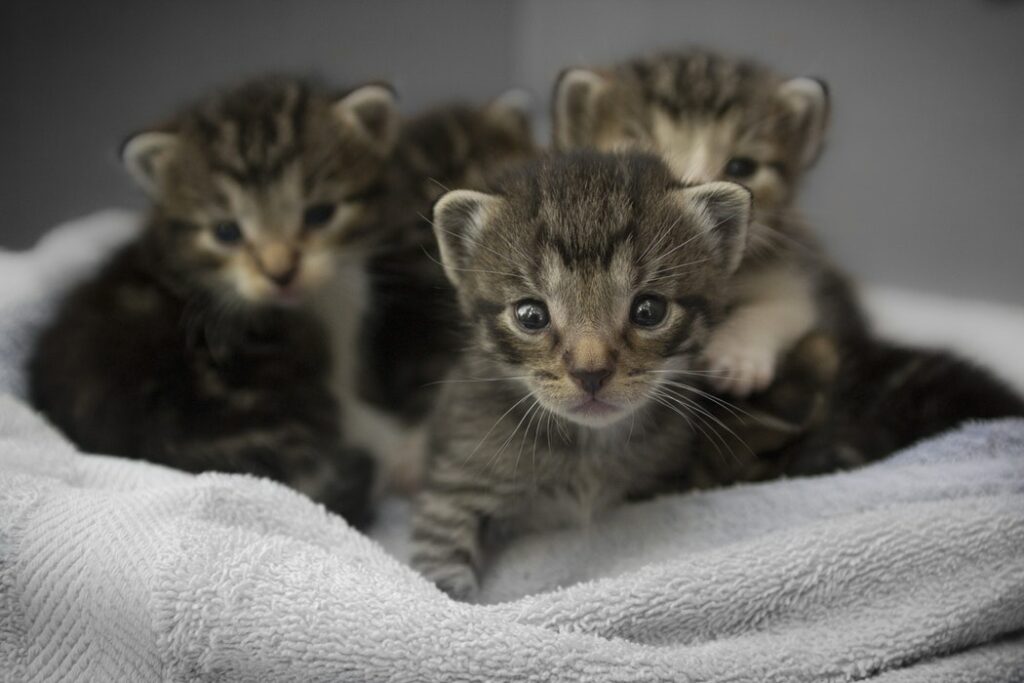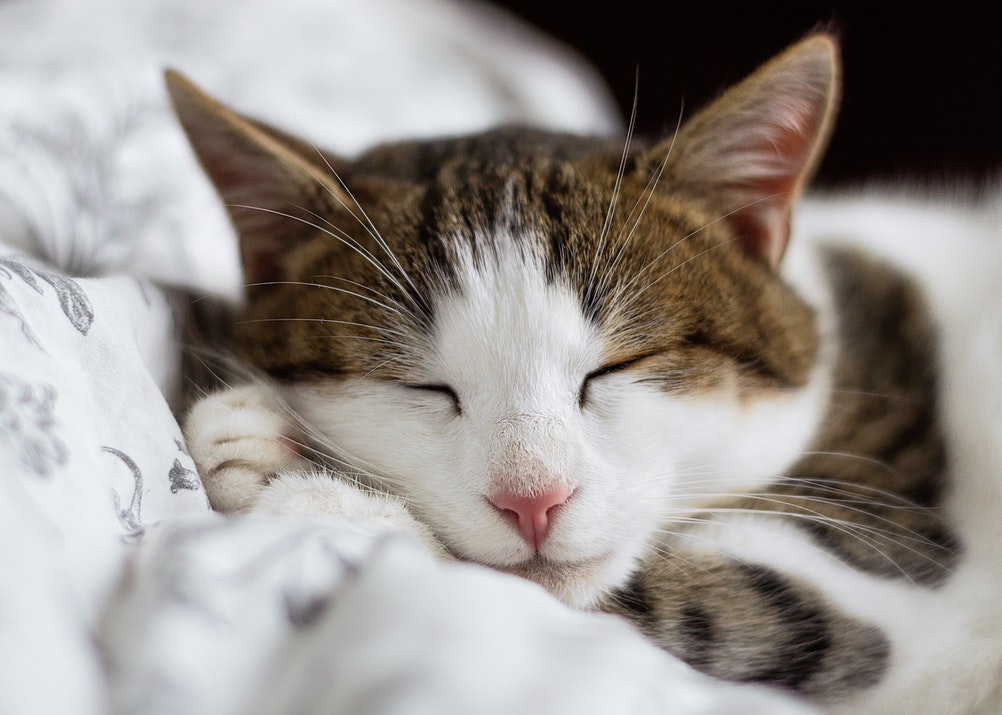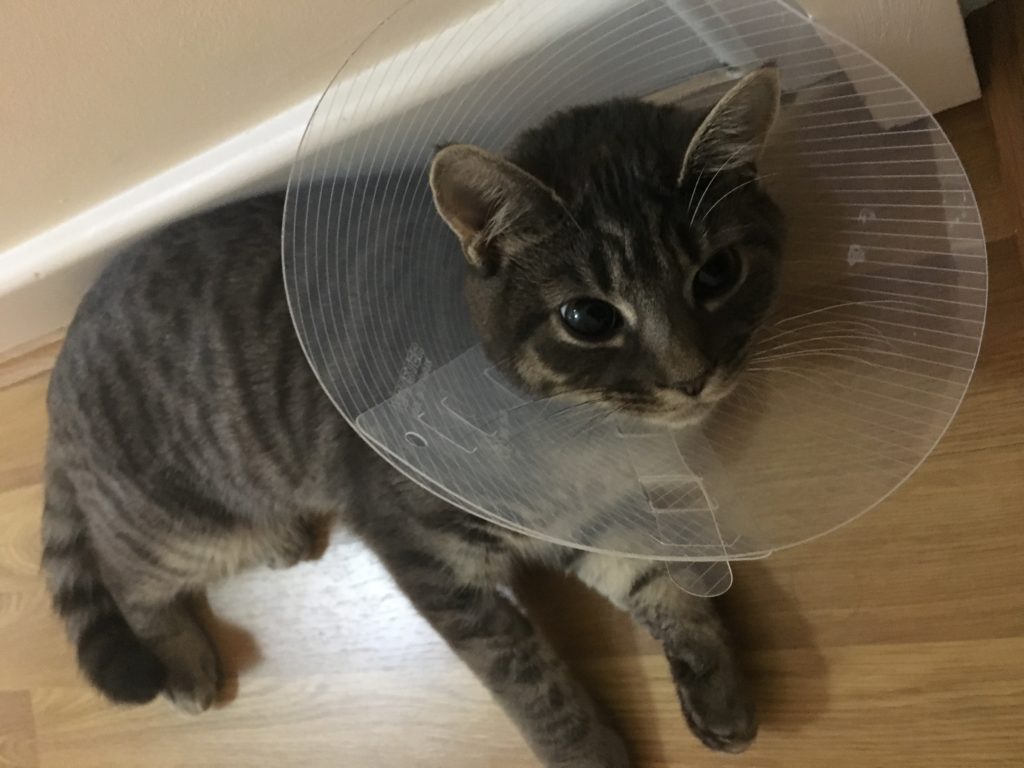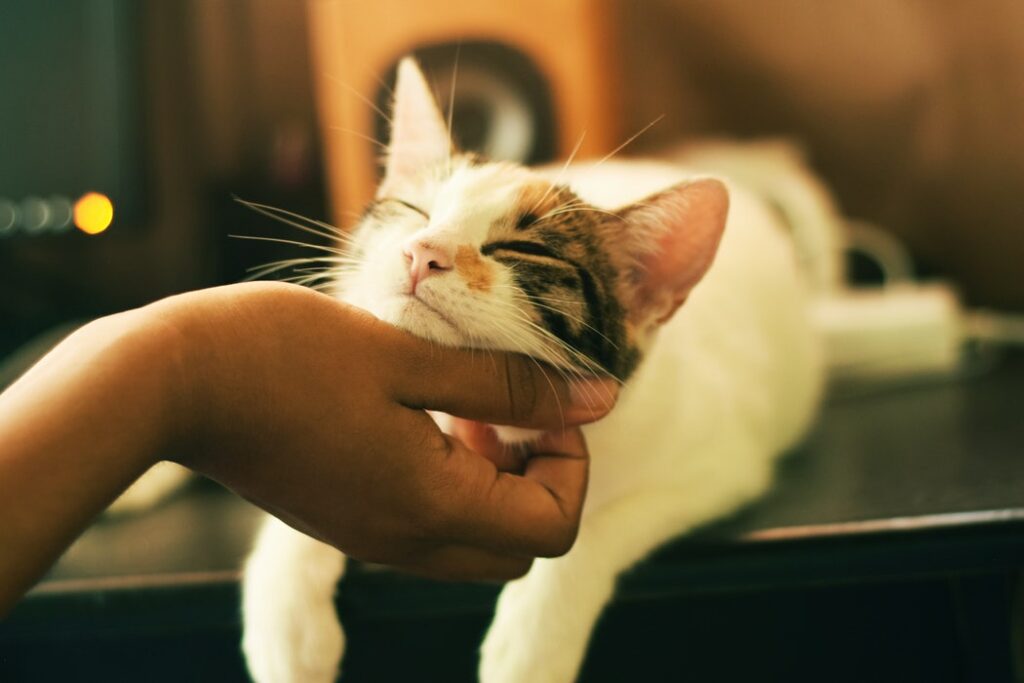Deciding if neutering or spaying is right for your cat is a big decision. You might have some ideas about breeding your cat, because who wouldn’t want kittens that looked just like yours? Unfortunately, this isn’t always possible. Spaying or neutering is the responsible thing to do with your pet. You also have to consider his or her safety on the streets, and overpopulation issues with cats in general.

Neutering or spaying your pet can be a tough decision, but it is one that needs making. Once a cat reaches adulthood you will need to decide if you’re going to leave him or her or make the decision to fix your pet. Leaving them un-neutered can have a big impact on their future health, as well as their behaviour and temperament. It’s important to weigh all of the advantages of spaying and neutering before you make the decision.
Neutering or spaying is a routine operation, but it is done under anaesthetic so after-care for your cat is important. Much like when a person gets an operation, there is a recovery period. You need to make sure that your cat is recuperating in a way that’s comfortable for them. You will also have to watch out for signs of infection around the wound and make sure your cat isn’t disturbing its stitches. If done properly, the operation can be a routine and comfortable experience for your cat.
Neutering or Spaying Your Cat to Prevent Pregnancy
Once your cat hits around 6 months old, you’re going to start noticing some changes. You will probably notice they start making different noises, this is them calling out for a mate. Male cats can become more aggressive with other animals, which can be a problem when you have other pets. They might also start straying much further from your house when they walk around. At this age, it’s time to decide if you should spay or neuter them. While doing so will give them health benefits, the main reason to do so is one of responsibility.
Once your cat is sexually mature, it can have kittens. If it is an outdoor cat, then it probably will have kittens. Male cats probably will father some kittens. There is no way to teach them not to do this. Keeping them as an indoor cat will avoid this but it has its own complications, the only way to be sure is neutering or spaying.
If you are planning on breeding your cat, you have to be sure that each kitten will have a loving home to go to. Without a guaranteed home, they will end up in shelters. If they do, it’s a gamble if they’ll ever make it to a home. It is not the nicest thing to consider, but there is a problem with over-population of cats. Put bluntly, there aren’t enough homes for all of the kittens being born. This leads to a massive over-population in shelters. There simply isn’t the space or funding to house all of the cats from unwanted or irresponsible pregnancies. This leads to healthy cats and kittens having to be put down, just because there is nowhere for them to go. Neutering or spaying is the responsible thing to do to help stop this.
Behavioural and Health Benefits of Neutering or Spaying Your Cat

Neutering or spaying isn’t just to help with over-population, there are also some behavioural and health benefits for your cat. For female cats, being spayed can greatly reduce the risk of both breast cancer and womb infections. Breast cancer is the third most common form of cancer for female cats, reducing this risk could make a big difference to your cat’s chance of living into old age.
Womb infections can be equally fatal. Many types of these infections are treatable but can become serious. This can be painful for your cat and take a long time to treat. Spaying your cat can avoid this drawn out and painful affair. These benefits can really help to improve the quality of life for female cats further down the road, a small surgery early in life is a much softer treatment option.
Neutering your male cat will do wonders for their temperaments. A fixed male cat will have a different blend of hormones which can help iron out any dangerous behaviour. After neutering, male cats are less inclined to fight with other cats and animals. This can help prevent them getting hurt in catfights, but it also lowers their risk of a dangerous disease. Feline immunodeficiency virus is usually transmitted one from cat to another while fighting. It is unfortunately common in strays. It is a dangerous disease, neutering your cat will help prevent them contracting it.
Male cats will also lose the impulse to wander far away from home. This will keep them safe from traffic and other threats, as well as reducing the risk of getting lost. Before neutering, a male cat will wander quite far when it picks up on female pheromones. Once neutered, they’ll lose the desire to chase this scent.
After-Care for Neutering or Spaying

Neutering or spaying a cat is done under anaesthetic. They will react to this the same way that people do. If you’ve had procedures under anaesthetic yourself, you probably remember that you needed quite a bit of rest to get back to normal. Cats need this rest too. They need sleep. Following this, they will need supervision to ensure that they are recuperating properly.
Sometimes the process of neutering or spaying can be done in a single day, However, your vet might decide it is best to keep your cat in overnight. This might make you anxious, but more often than not it’s just due to the practicalities of timing multiple operations on the same day. The surgery is relatively simple, only one small incision is for female cats. Males have their testes removed with a slightly larger incision. Your vet will give you some instructions for your cat’s care after they have been discharged. You should follow this advice to the letter to ensure a good recuperation. You should also talk to your vet about signs of infection. This is unlikely, but it doesn’t hurt to be safe.
For the first 12-24 hours after neutering or spaying, your cat will probably be quite sleepy. This is natural. You should let your cat relax and get some much-needed rest, preferably in a nice spot. You should give your cat a light meal during this period, but try not to stuff them with treats.
If your cat won’t eat for as long as 24 hours after the surgery, you should check in with your vet. A loss of appetite or your cat not returning to normal after a few days can be a sign that something is wrong. You shouldn’t panic, but make sure your vet knows in case there has been a complication.
Medication and Tending to The Wound

Your vet might prescribe some medication for your pet to help with any pain. If they do so, just follow their instructions completely. Dosing animals properly is complicated. No matter how much you know your pets, you are not in a position to judge. Keeping to the vet’s instructions no matter how much your pet dislikes the medication will help everything go smoothly.
Cats will naturally try to lick their own wounds. It’s an instinct that helps them keep safe in the wild, but doesn’t help after a planned operation. It is very important that you keep your cat from licking the area around their wound. If your vet hasn’t provided one, a collar around your cat’s neck will stop them getting access to the wound. This might look a bit strange but it will prevent them from causing any infection or damaging the stitches.
As your cat recovers from neutering or spaying, they will gradually return to normal. They still need rest though. You should keep your cat inside for this period, preferably for at least two weeks after the operation. If your cat is young, they might return to their high-activity selves. Like people after an operation, they need rest whether they like it or not. This means you might have to work at keeping energetic cats resting during this period.
After Recovering

After enough time has passed your cat will return to normal. If it is a male, his behaviour might have changed a bit. This is natural. Until the wound is completely healed, you should periodically check your cat’s wound for any signs of tears. If there any problems, you should take a trip back to your vet. This is the simplest solution rather than trying to address this yourself.
After a few weeks, your cat will once again be safe to leave the house. It can now do so without you worrying about anyone getting pregnant. Neutering or spaying is ultimately for the best unless you have something specific in mind for your cat. Overbreeding and irresponsible cat owners are a serious worry. By taking the time to keep your cat safe from other un-neutered animals, your helping your cat and helping to reduce the number of unwanted kittens in the world. You might feel a little guilty as your cat recovers, but you definitely made the right decision to keep your cat and others safe.
Have you done the responsible thing for your cat?









